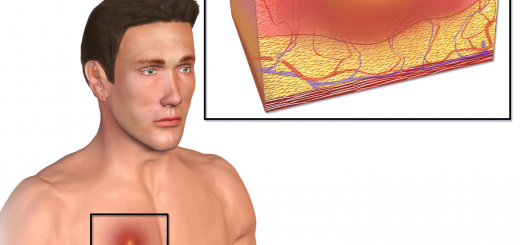A Guide to Handling Chickenpox in Babies
Hey there, concerned parents! As your baby grows and explores the world around them, they may encounter various infections, including viral illnesses. One such common viral infection is chickenpox, which can be quite distressing for both you and your little one. In this comprehensive guide, we’ll walk you through what to do if your baby comes into contact with chickenpox and provide essential tips on managing viral infections in infants. Let’s tackle this challenge together and ensure your baby’s well-being!
Understanding Chickenpox
Chickenpox is a highly contagious viral infection caused by the varicella-zoster virus. It often starts with a mild fever, followed by the appearance of itchy red spots that develop into fluid-filled blisters. While chickenpox is usually more severe in older children and adults, it can also affect infants, especially those under one year old. If your baby has been in contact with someone who has chickenpox, it’s essential to be vigilant and take appropriate measures.
Recognizing Symptoms in Your Baby
In infants, chickenpox symptoms may vary from those in older children. Look out for signs such as:
- Fever
- General discomfort and irritability
- Loss of appetite
- Rash or spots on the body, including inside the mouth, ears, and genitals
- Development of blisters filled with clear fluid
If you notice any of these symptoms in your baby, consult a pediatrician promptly for a proper diagnosis and guidance.
Seek Medical Advice
If your baby has been in contact with someone diagnosed with chickenpox or is showing symptoms, don’t hesitate to contact your healthcare provider. They will assess your baby’s condition and advise you on the best course of action.
Preventing the Spread of Infection
Chickenpox spreads through direct contact with an infected person or by inhaling respiratory droplets from coughing or sneezing. To prevent further spread of the virus:
- Keep your baby away from other children or individuals who are susceptible to chickenpox, such as pregnant women, newborns, and those with weakened immune systems.
- Avoid public places and gatherings until your baby is no longer contagious.
Offering Comfort and Care
If your baby has chickenpox, offer them plenty of comfort and care to ease their discomfort. Keep their nails trimmed to prevent scratching, and consider using soft mittens or socks to protect their skin. Dress them in loose, breathable clothing to minimize irritation. Additionally, give them plenty of fluids to stay hydrated and help manage fever.
Medical Treatment

There is no specific cure for chickenpox, but certain measures can help alleviate symptoms and prevent complications. Your healthcare provider may recommend over-the-counter medications to reduce fever or soothe itchiness. In severe cases, antiviral medications may be prescribed for high-risk infants or those with complications.
Monitor for Complications
In rare cases, chickenpox can lead to serious complications in infants. Keep a close eye on your baby’s condition and seek immediate medical attention if you notice:
- Difficulty breathing or fast breathing
- Persistent high fever
- Severe headache or dizziness
- Stiff neck
- Swelling or pain in the limbs
- Difficulty waking up or staying alert
Remember, always follow your healthcare provider’s advice and trust your instincts when it comes to your baby’s health.
By being proactive and well-informed, you can take the necessary steps to protect your baby’s health and well-being if they come into contact with chickenpox or any other viral infection. Your love and care, coupled with medical attention when needed, will help your baby recover and continue thriving on their exciting journey of growth and development.
Hope you like this article. Remember to jot down a few words in the comments below and bookmark our blog for more informative articles on baby disorders and illnesses.



